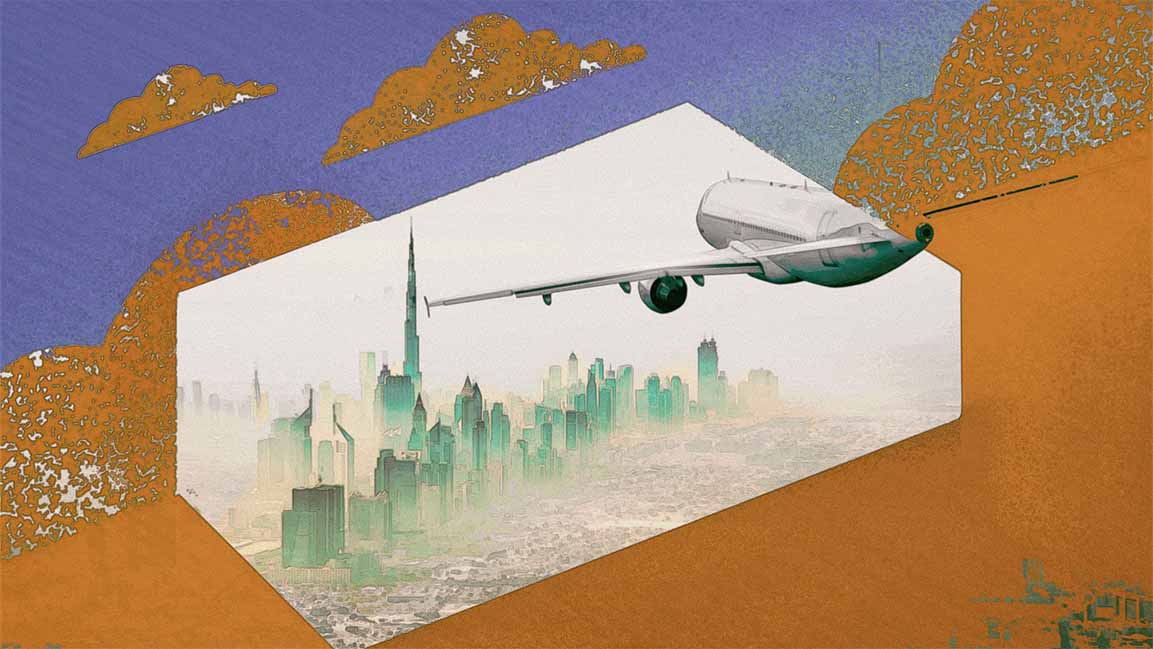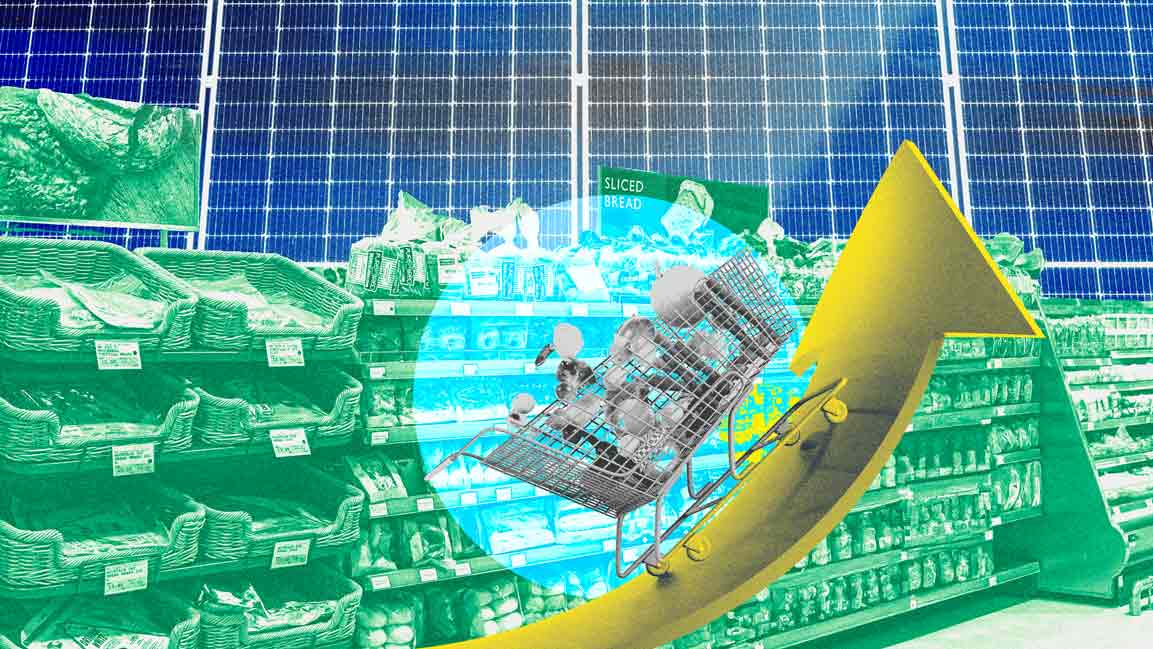- | 9:00 am
This is what sustainable travel looks like in the Middle East
Experts say steady strides are made to reshape and reimagine tourism within the region

According to Sustainable Travel International, tourism is responsible for roughly 8% of the world’s carbon emissions. This comes as no surprise given the burden on resources that travel entails. However, sustainable travel is gaining momentum in the Middle East as organizations work to reshape and reimagine tourism in the region within mobility, hospitality, and local communities.
A discussion on sustainable tourism would not be complete without a critical look at the transport sector. According to a report by the World Tourism Organization and the International Transport Forum, transport-related emissions from tourism are rising, with a 25% increase predicted from 2016 to 2030.
For Pia Tabet, General Manager for Uber UAE and Levant, technology is set to play a transformational role in mobility and curbing such trends — decreasing air pollution, reducing urban congestion, and increasing access to clean transportation modes.
“Across MEA, the introduction of Uber Green has allowed everyone to access clean transportation,” she says, adding that reduced fares for Uber Green encourage more riders to choose green rides.
Uber and Etihad Rail will conduct studies on passenger activity and movement between cities to enhance integrated passenger transportation. “The goal is to explore opportunities to integrate e-hailing services within the public transport ecosystem to unify journey planning,” she says.
In Egypt, Uber partnered with the Ministry of the Public Business Sector to pilot locally assembled electric vehicles. “Multimodality and public transit is the backbone of a sustainable mobility ecosystem,” adds Tabet.
SUSTAINABLE HOSPITALITY OPERATIONS
For Stephane Kilidjian, technology adoption is critical to initiate a change. As the Founder of Ecotag, an app allowing operators to completely cut the use of client-facing single-use paper and plastic when displaying information, whether in, meeting spaces, buffets, offices or coffee breaks.
Aside from helping businesses lower their paper, ink, and plastic consumption, he adds that it also mitigates time loss, which will further reflect in cost savings.
“Hotel, lounge, restaurant, cruise ship, and other operations could save trees and plastic pollution globally by integrating technology,” he says.
An article published by the University of Central Florida found that 62% of travelers have opted for more environmentally friendly hotels, food, and transportation. Similarly, in 2019, the Hilton Group surveyed 77,000 of their clients, which revealed that 33% prefer hotels with environmental programs.
“Since then, the Hilton group has identified, implemented, and achieved many sustainable goals because they took the time to listen to their guests’ needs. Many hotel groups are now leading the charge with Marriott, IHG, Wyndham, and Hyatt pushing for more solutions to reduce their environmental impact,” adds Kilidjian.
STRIVING FOR SUSTAINABLE COMMUNITIES
While the value of technology is becoming evident, Youmna Hammoud, Managing Director and Co-Founder of Toureef, advocates for extending the concept of sustainability to include local communities.
“Sustainable travel has a twofold positive impact on local economies,” she says. “It generates employment opportunities, supports local businesses, and encourages skill development.”
Hammoud points out sustainable travel enables people to stay rooted in their villages and hometowns. “When tourism provides a steady income stream for residents, they are less inclined to migrate to cities in search of employment opportunities. This bolsters social and economic vitality.”
Through her work, Hammoud adds that in recent years, the Middle East has made significant advances in embracing the principles of sustainable tourism. “One of the most prominent shifts has been the focus on promoting eco-friendly and culturally immersive experiences.”
Collaboration plays a pivotal role in advancing this philosophy, Hammoud adds, providing, as an example, the launch of the Mediterranean Trail Network, connecting Jordan, Lebanon, and Palestine, which showcases a cooperative regional plan for sustainable tourism.
Several destinations have emerged as exemplary models for sustainable tourism. Among those are the Wadi Rum Biosphere Reserve in Jordan, with its commitment to preserving the desert ecosystem; the Red Sea Sustainable tourism initiative in Egypt, which highlights marine conservation and coral reefs protection; and, thirdly, the Lebanon mountain trail imitative, emphasizing eco-friendly practices, community engagement, and cultural preservation.
Hammoud’s company, Toureef, aims to foster sustainable tourism and promote socio-economic development in underserved destinations, as well as Beit Toureef, a restored heritage house in the heart of Beirut.
“Tourism should be a catalyst for positive change. Our focus at Toureef is on empowering residents and encouraging them to participate in the tourism industry actively. This could involve showcasing traditional crafts and artistry, offering authentic culinary experiences, and providing unique accommodation options that blend modern comfort with local charm.”
CHALLENGES IN PROMOTING SUSTAINABLE TRAVEL
While improvements across the different sectors are palpable, bottlenecks still exist when promoting sustainable travel.
“While the region boasts abundant natural and cultural resources, effective management has been a significant hurdle,” says Hammoud.
Inadequate infrastructure, and a lack of comprehensive waste management strategies pose direct threats to sustainable travel, compounded by climate change.
“Addressing these challenges requires a concerted effort from governments, communities, and the travel industry to ensure that the region’s rich resources are preserved and responsibly enjoyed for generations to come,” she says.
Weighing in, Kilidjian says that another challenge is changing the mindset to encourage organizations to invest in sustainable solutions.
“The hospitality industry is slowly changing. We are a small part of the solution to a larger problem that impacts all of us.”
Despite the complexity of the road ahead, Hammoud says sustainable travel in the Middle East and Mediterranean region is an incredible opportunity to explore the richness of these areas.
“These regions are characterized by their abundant cultural heritage, breathtaking biodiversity, and diverse communities, making them true hotspots for sustainable and eco-tourism,” she says.
At its core, sustainable travel is about the responsible exploration of new destinations.
“It’s about traveling in a way that minimizes negative impacts on local communities and the environment while fostering a deep appreciation for the beauty and uniqueness of the places we visit,” adds Hammoud.







































